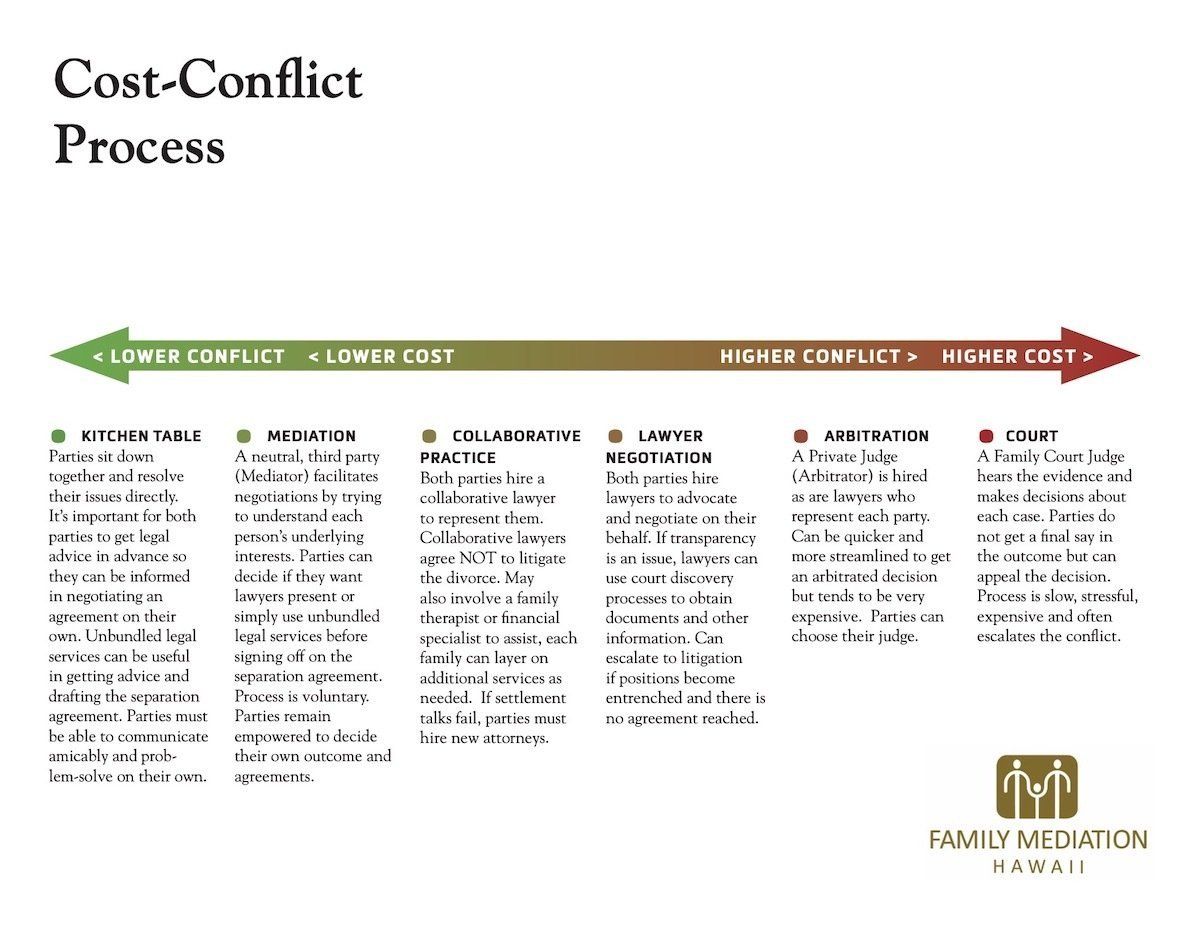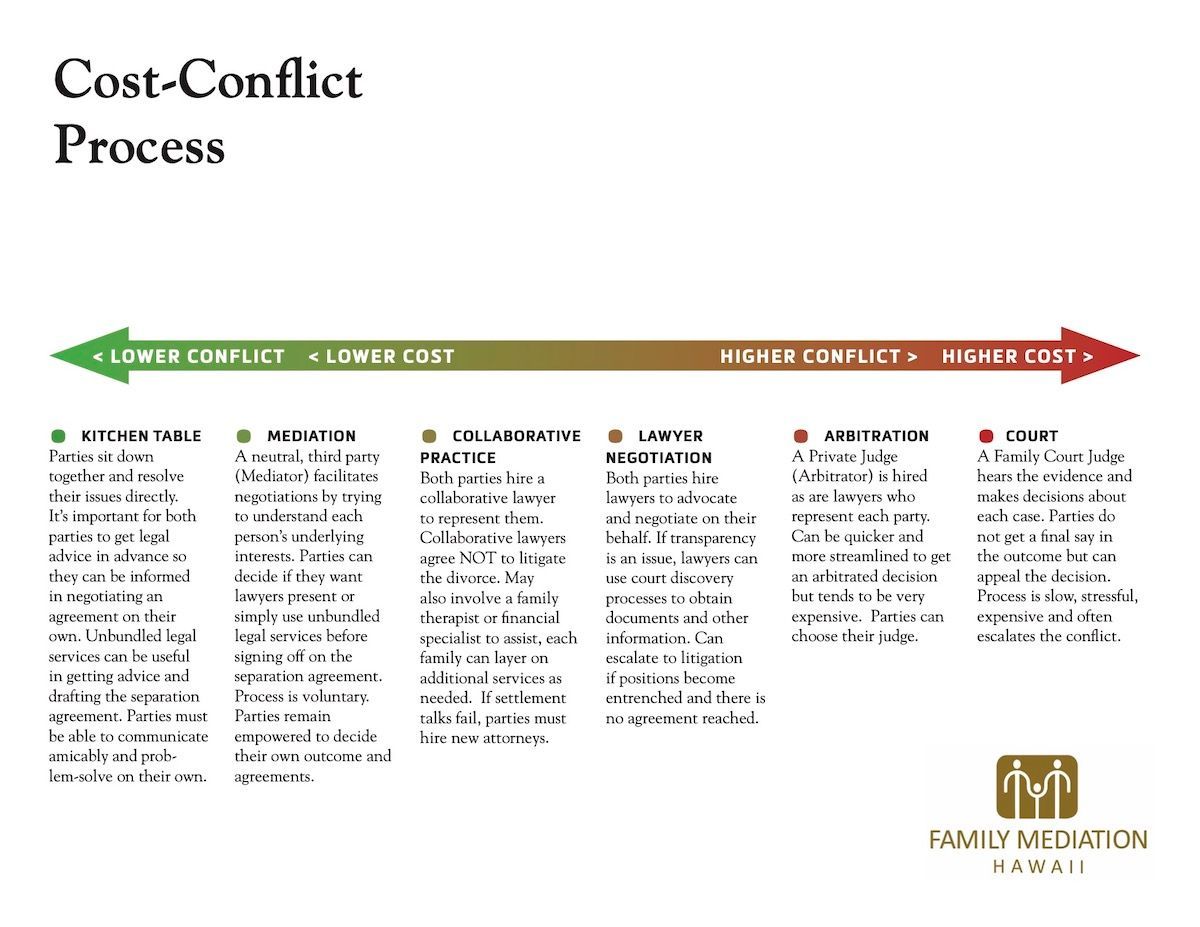Divorce Process Options

When considering divorce, the follow options are available starting with the lowest cost and conflict level of a kitchen table divorce and moving up the scale to the highest cost and conflict level when the Court must make decisions for your family. Obviously, both parties have an interest in keeping the process low cost, low conflict, and retain some level of control over the final outcome.
Kitchen Table : Parties sit down together and resolve their issues directly. It’s important for both parties to get legal advice in advance so they can be informed in negotiating an agreement on their own. Unbundled legal services can be useful in getting advice and drafting the separation agreement. Parties must be able to communicate amicably and problem-solve on their own.
Mediation : A neutral, third party (Mediator) facilitates negotiations by trying to understand each person’s underlying interests. Parties can decide if they want lawyers present or simply use unbundled legal services before signing off on the separation agreement. Process is voluntary. Parties remain empowered to decide their own outcome and agreements.
Collaborative Practice : Both parties hire a collaborative lawyer to represent them. Collaborative lawyers agree NOT to litigate the divorce. May also involve a family therapist or financial specialist to assist, each family can layer on additional services as needed. If settlement talks fail, parties must hire new attorneys.
Lawyer Negotiation : Both parties hire lawyers to advocate and negotiate on their behalf. If transparency is an issue, lawyers can use court discovery processes to obtain documents and other information. Can escalate to litigation if positions become entrenched and there is no agreement reached.
Arbitration : A Private Judge (Arbitrator) is hired as are lawyers who represent each party. Can be quicker and more streamlined to get an arbitrated decision but tends to be very expensive. Parties can choose their judge.
Court : A Family Court Judge hears the evidence and makes decisions about each case. Parties do not get a final say in the outcome but can appeal the decision. Process is slow, stressful, expensive and often escalates the conflict.












